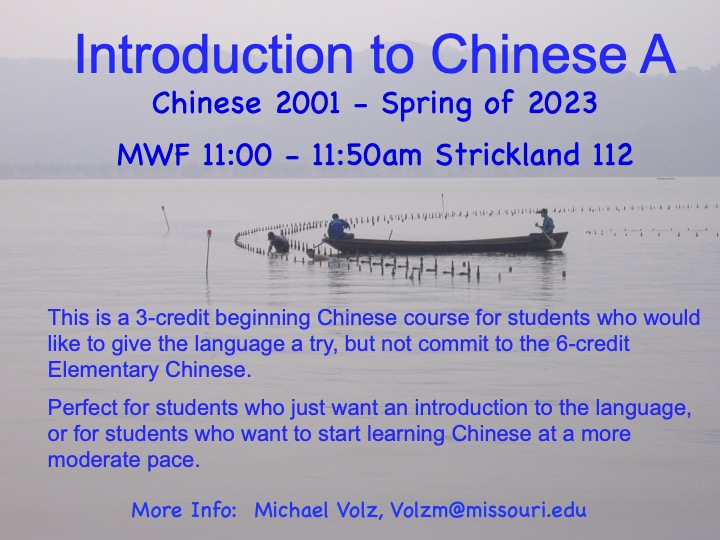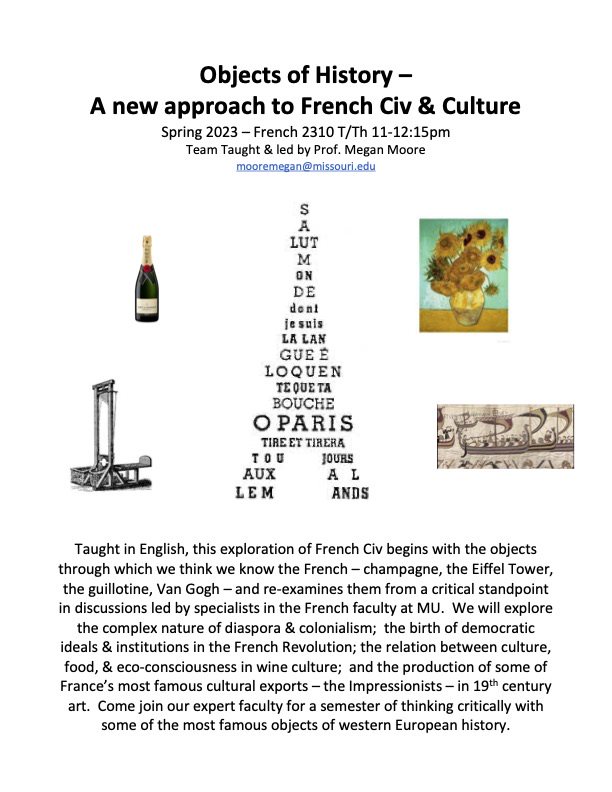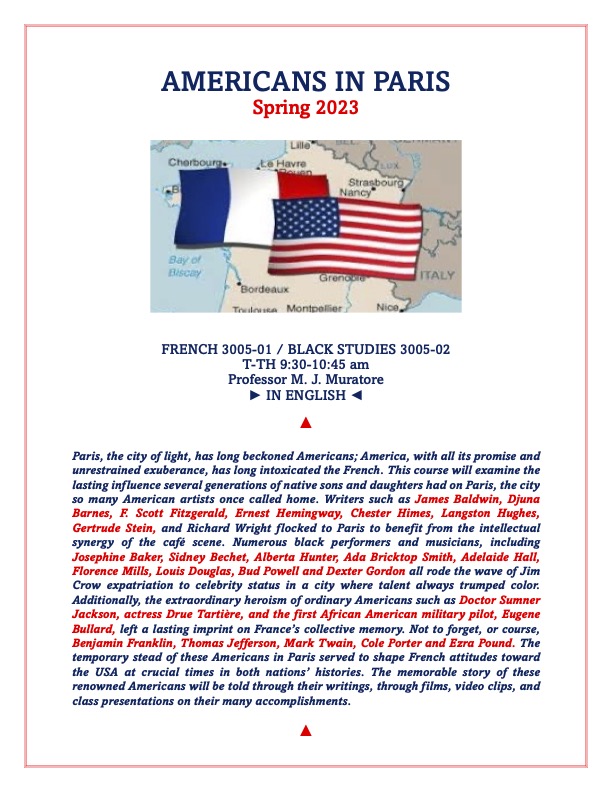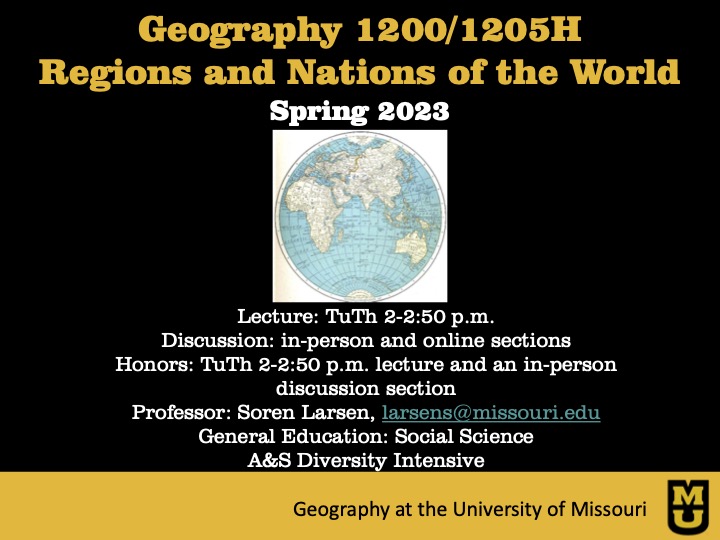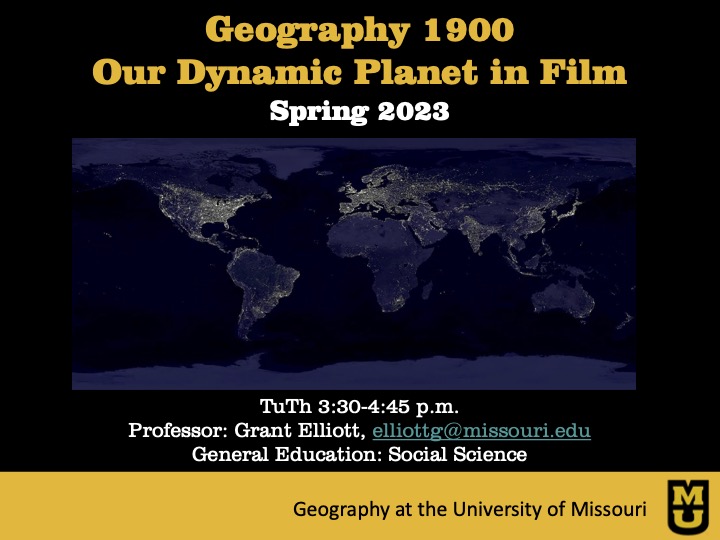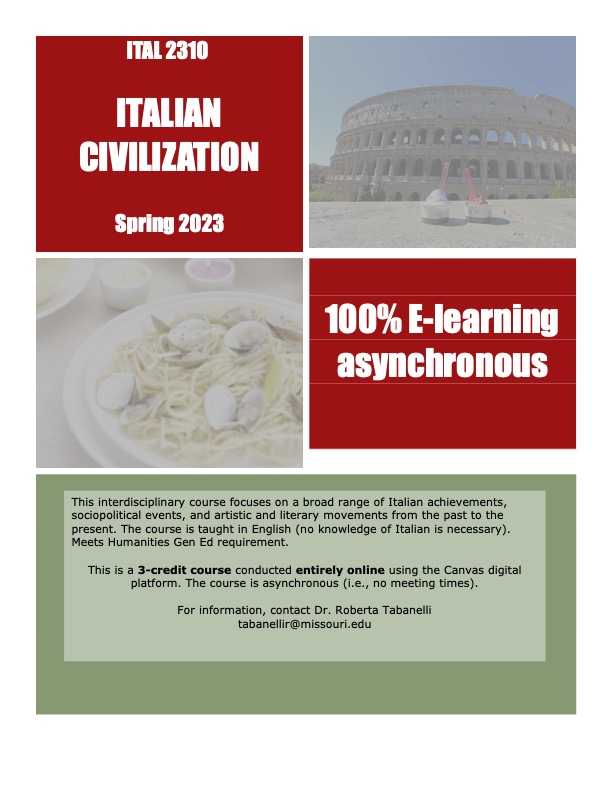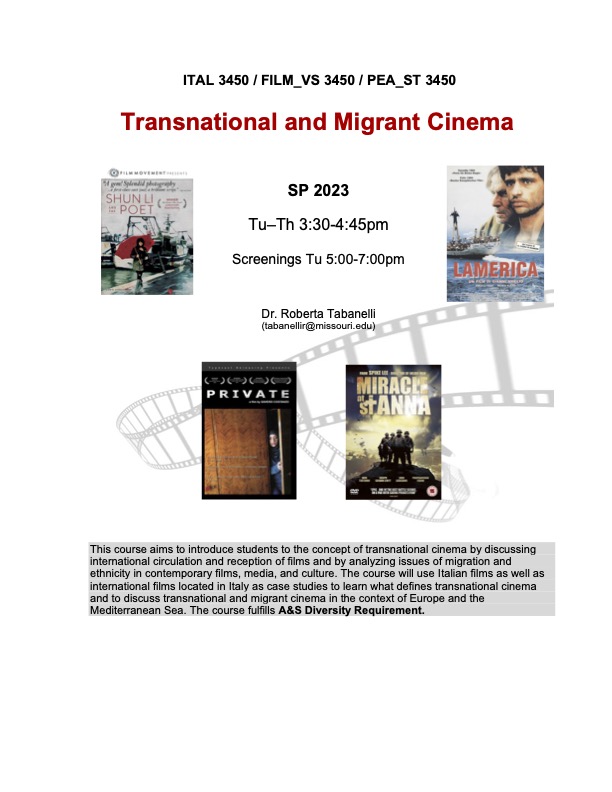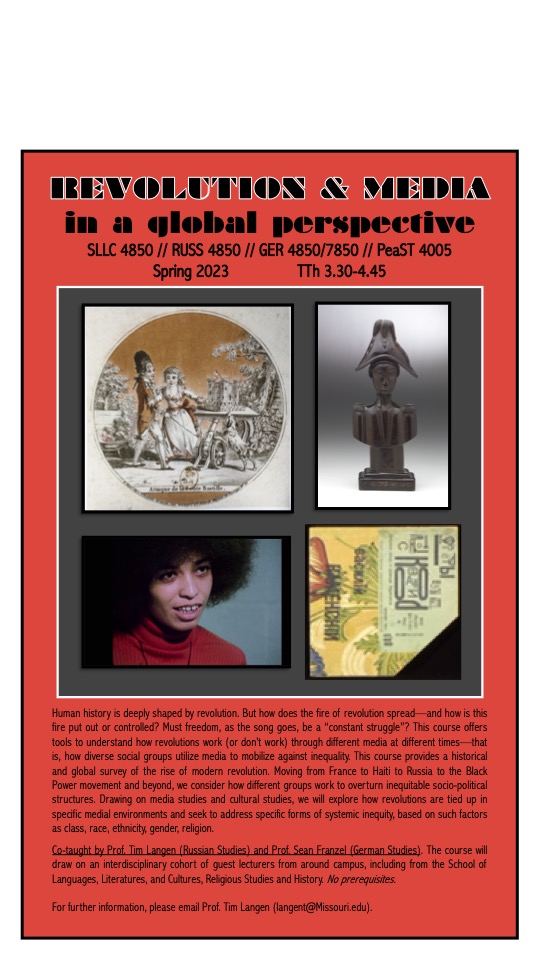Spring 2023 New Courses
Below is a list of new or highlighted International Studies courses that are available in Spring of 2023. For a complete list of courses that can count towards the International Studies Degree visit
International Studies Course List
Please note that not all the courses in the linked list may be regularly offered. Use MyZou to determine course availability.
Chinese 1100 – Introduction to Chinese A
MWF 11:00 – 11:50am Strickland 112
This is a 3-credit beginning Chinese course for students who would like to give the language a try, but not commit to the 6-credit Elementary Chinese. Perfect for students who just want an introduction to the language, or for students who want to start learning Chinese at a more moderate pace.
Michael Volz, volzm@missouri.edu
French 2310 - Objects of History
T / Th 11 – 12:15pm
Taught in English, this exploration of French Civ begins with the objects through which we think we know the French – champagne, the Eiffel Tower, the guillotine, Van Gogh – and re-examines them from a critical standpoint in discussions led by specialists in the French faculty at MU.
Professor Megan Moore
French 3005-1 / Black Studies 3005-2 – Americans in Paris
T / Th 9:30 – 10:45am
Paris, the city of light, has long beckoned Americans; America, with all its promise and unrestrained exuberance, has long intoxicated the French. This course will examine the lasting influence several generations of native sons and daughters had on Paris, the city so many American artists once called home. The course is in English and no prerequisites are specified.
Professor M. J. Muratore
GEOG 1200/1205H – Regions and Nations of the World
T / Th 2 – 2:50pm (+ in-person discussion section)
Introductory analysis for general education. Regional character, spatial relationships, problems of environment and development of the former Soviet Union, Pacific World, South and East Asia, Africa and Middle East. Organized around basic concepts in the field of geography. May be taken independently of GEOG 1100. 3 credits. A&S diversity intensive.
Professor Soren Larsen
GEOG 1900 – Our Dynamic Planet in Film
T / Th 3:30 - 4:45pm
This 3 credit course uses documentary films (e.g., Planet Earth) to explore how global environmental change is impacting human life and livelihoods, with a focus on the intersection of personal identity, social organization, and climate justice in patterns and processes of human-environment interaction. Films are supplemented with interactive lectures and discussions of assigned readings from both periodicals and peer-reviewed literature.
Professor Grant Elliot, elliottg@missouri.edu
ITAL 2310 – Italian Civilization
100% Asynchronous, Online
This interdisciplinary course focuses on a broad range of Italian achievements, sociopolitical events, and artistic and literary movements from the past to the present. The course is taught in English (no knowledge of Italian is necessary). This is a 3-credit course and meets Humanities Gen Ed requirement. Contact Dr. Roberta Tabanelli tabanellir@missouri.edu with questions.
Dr. Roberta Tabanelli
ITAL 3450 – Transnational and Migrant Cinema
T / Th 3:30 – 4:45pm; Screenings Tuesday 5 – 7pm
This course aims to introduce students to the concept of transnational cinema by discussing international circulation and reception of films and by analyzing issues of migration and ethnicity in contemporary films, media, and culture. The course will use Italian films as well as international films located in Italy as case studies to learn what defines transnational cinema and to discuss transnational and migrant cinema in the context of Europe and the Mediterranean Sea. The course fulfills A&S Diversity Requirement.
Dr. Roberta Tabanelli
SLLC 4850 – Revolution and Media in a Global Perspective
T / Th 3:30 - 4:45pm
This course offers tools to understand how revolutions work (or don’t work) through different media at different times—that is, how diverse social groups utilize media to mobilize against inequality. This course provides a historical and global survey of the rise of modern revolution. Moving from France to Haiti to Russia to the Black Power movement and beyond, we consider how different groups work to overturn inequitable socio-political structures. No prerequisites.
Professor Tim Langen, langent@Missouri.edu

German 4810 /PeaSt 4810 / TAM 4810 – Case Studies in an Inter/Multicultural World
Online Asynchronous
This course examines the ways in which people across the globe are affected every day by an unprecedented array of linkages that defy geographic and political boundaries. As our point of reference, we will concentrate on three case studies. The first is an analysis of the 2030 Agenda for Sustainable Development, in particular SDG Goal One that addresses ending extreme poverty. The second case study looks at strategic visions and shifting alliances in the Middle East and how history and global relations have reshaped that region in the 20th and 21st century. The third case study analyzes the presence of Islam in Europe and how it plays out in politics and culture in particular in regard to Europe’s border crisis and the new changing configurations of migration from Africa.
Professor Monika Fischer, fischerm@missouri.edu

German 3510W / PeaSt 3510W / TAM 3010W – Think Global: Fundamentals of Globalization & Digital Technologies
Online Synchronous - meeting in small groups T 3:30-4:45pm with option to meet at a different time that suits each group
This inter-departmental course focuses on dynamics of globalization and its impact on cultures around the world from various interdisciplinary perspectives. Readings and other class material (TED talks, podcasts, etc.) will address and evaluate the roles of social, entrepreneurial, non-profit and for-profit organizations and their use of transformational technologies in a global setting as well as introduce students to fundamental problems and concepts of today’s global society. Emphasis is placed upon cultural diversity, life in an interconnected and precarious world, and the analysis of new media environments
Professor Monika Fischer, fischerm@missouri.edu
